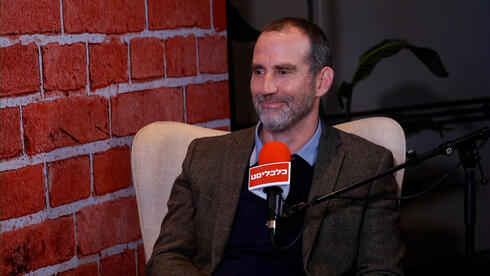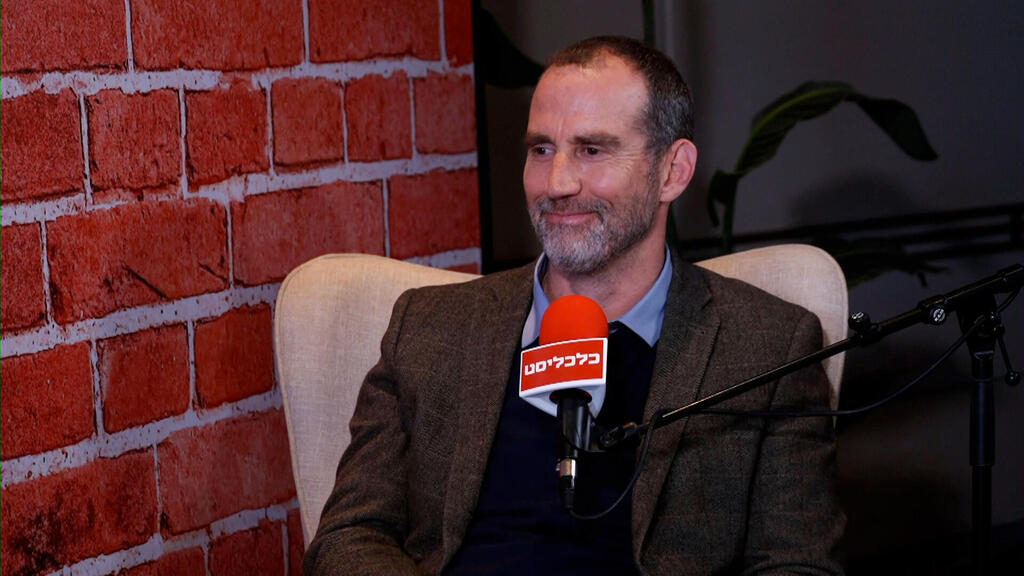
“In the age of AI, what truly matters is the ability to ask questions, analyze information, and solve complex problems”
Tomer Simon, Chief Scientist of Microsoft Israel Research and Development, spoke on a podcast interview about the effects of artificial intelligence on education and academia.
"The education system today often emphasizes memorizing facts, but in the age of artificial intelligence, what truly matters is the ability to ask questions, analyze information, and solve complex problems," said Tomer Simon, Chief Scientist of Microsoft Israel Research and Development. He spoke during a podcast as part of Calcalist's 2025 Forecasts Conference, held in collaboration with Bank Hapoalim and the Phoenix Group, which took place on Tuesday in Tel Aviv.
As the world races to integrate artificial intelligence into all areas of life, the education system and academia are facing unprecedented challenges and opportunities. "Artificial intelligence is changing the rules of the game," Simon explained. "This technology not only provides answers but also generates new questions. It enables us to rethink how we learn, what we learn, and how we can prepare the next generation for a rapidly changing world."
According to Simon, the impact of AI on education is far-reaching and multidimensional. "On one hand, there is the pedagogical aspect: personalizing learning for each student using intelligent systems that can identify individual strengths and weaknesses. On the other hand, there is the infrastructural aspect: developing innovative platforms that facilitate learning from anywhere and at any time," he said.
Simon highlighted a significant opportunity offered by AI: the development of future-ready skills. "The education system today often focuses on memorizing facts," he reiterated. "But in the age of artificial intelligence, what’s truly critical is teaching students how to ask meaningful questions, analyze complex information, and solve challenging problems."
However, the transition to integrating AI into education is not without its challenges. Simon stressed the importance of adapting curricula to align with the new reality. "The academic world must ask itself: are we preparing students for the world of today, or for the world that will exist five or ten years from now?"
One of the biggest challenges, he noted, is ensuring the relevance of the content being taught. "Rather than teaching students how to use specific software, we need to focus on teaching enduring principles, such as critical thinking and collaboration with advanced technological systems," he said.
While Simon acknowledged the enormous potential of AI in education, he also warned against its misuse. "Artificial intelligence can widen existing gaps if it isn’t integrated equitably," he cautioned. "We must ensure that advanced technology is accessible to all students—not just those who can afford it."
He also emphasized the critical role of training teachers in this process. "No technology can replace the teacher, but it can certainly serve as a powerful tool in their hands," Simon said. "Teachers need to learn how to leverage artificial intelligence to enhance their teaching methods, rather than fear it."
Looking ahead, Simon expressed optimism about AI's potential to transform the education system. "If implemented wisely, artificial intelligence can drive us toward a better future," he concluded. "An education system that adapts to the needs of each student, fosters skills for a changing workforce, and uses technology to make knowledge universally accessible is one that’s prepared for the 21st century."
Simon also emphasized the critical role education and academia will play in shaping the society of tomorrow. "This isn’t just about technology," he stated. "It’s about people—the teachers, researchers, and students—those who believe in the transformative power of education to change the world."














